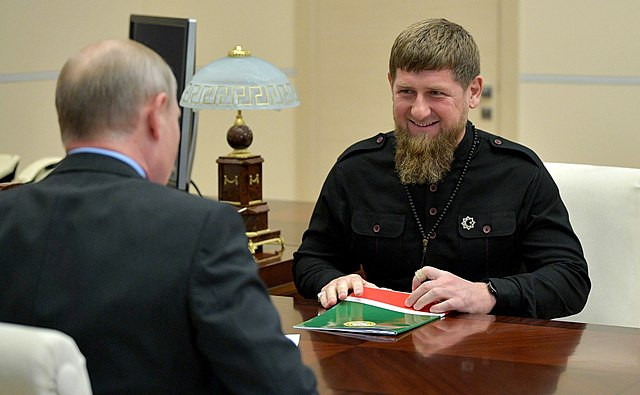Chechen warlord Ramzan Kadyrov, a close ally of Russian President Vladimir Putin, has made explosive allegations against Tesla CEO Elon Musk, claiming that Musk remotely disabled a Cybertruck that Kadyrov had deployed in Ukraine. According to Kadyrov, the Cybertruck, which he says was mounted with a machine gun and gifted by Musk, stopped functioning on the front lines of Russia's military operations in Ukraine, necessitating the vehicle's removal from the battlefield.
"Elon Musk behaved badly," Kadyrov wrote on the Russian social media platform Vkontakte. "He gives expensive gifts from the bottom of his heart and then remotely disconnects them." Kadyrov further claimed that the truck, before being disabled, had performed admirably, demonstrating "manoeuvrability and good protection for the crew."
This strange saga has raised eyebrows across international circles, with Musk quickly denying any involvement. The Tesla and SpaceX CEO took to his own social media platform X (formerly Twitter) to refute the claims, calling it "amazing" that anyone could believe such a story. "Are you seriously so retarded that you think I donated a Cybertruck to a Russian general?" Musk responded, adding that the allegations were unfounded and absurd.
Kadyrov, known for his hardline leadership in Chechnya, had previously shared footage of himself driving the futuristic Cybertruck around the Chechen capital of Grozny. In the video, Kadyrov is seen standing behind a machine gun mounted on the electric truck, dressed in combat gear with a bandolier of bullets draped across his shoulders. The warlord claimed the vehicle was a gift from Musk, a claim the tech billionaire has flatly denied.
The accusation that Musk remotely disabled the vehicle comes at a particularly volatile time as the conflict between Russia and Ukraine escalates. Kadyrov, a fierce supporter of Putin's regime, has been vocal in his loyalty to Moscow, even calling for the use of low-yield nuclear weapons against Ukraine. The warlord's militarized use of the Cybertruck, originally a civilian electric vehicle, adds an unusual twist to the ongoing conflict.
In his latest statement, Kadyrov expressed frustration over the truck's sudden shutdown, describing Musk's alleged actions as "not manly" and asking, "How could you do that, Elon?" He went on to suggest that Musk's disabling of the Cybertruck left his troops vulnerable, requiring the vehicle to be towed off the battlefield.
While the veracity of Kadyrov's claims remains questionable, they have added another layer of intrigue to the complex dynamics of the Russia-Ukraine war. The Cybertruck incident, while bizarre, highlights the symbolic power of technology and how it can be weaponized-whether or not it was intended for military use. As of now, no independent sources have corroborated Kadyrov's claims of Musk gifting him the vehicle or disabling it remotely.
Kadyrov's vocal support for Russia's war efforts has earned him the nickname "Putin's attack dog." His heavy-handed tactics and close ties to the Kremlin have made him one of Russia's most feared regional leaders. Under his rule, Chechnya has seen severe human rights violations, including the persecution of dissenters, LGBTQ+ individuals, and ethnic minorities. International organizations have long condemned his authoritarian style of governance. The U.S. State Department has imposed financial sanctions on Kadyrov, citing credible information that he is responsible for "numerous gross violations of human rights, including torture and extrajudicial killings."
Despite Kadyrov's claims about Musk, the Tesla CEO has been clear in his condemnation of the war in Ukraine. Musk, whose company SpaceX provided Starlink satellite internet services to Ukraine early in the conflict, has also found himself entangled in geopolitical disputes over his ventures. However, there has been no indication that Musk or Tesla have actively provided any products, much less a machine-gun-mounted Cybertruck, to Russian forces.
As tensions continue to rise in the Russia-Ukraine conflict, Kadyrov's allegations, while sensational, seem to be more of a symbolic gesture than a credible accusation. Nevertheless, the narrative reflects the complex and sometimes absurd intersections of technology, politics, and warfare.
Kadyrov concluded his message by sending two additional Cybertrucks to the frontlines, though Musk's involvement in those vehicles remains equally dubious. Meanwhile, Ukraine continues to face heightened attacks from Russian forces, as evidenced by recent strikes that killed civilians in Sumy, Ukraine. Amid the chaos, Kadyrov's unusual battlefront complaints add yet another surreal chapter to the ongoing war.




